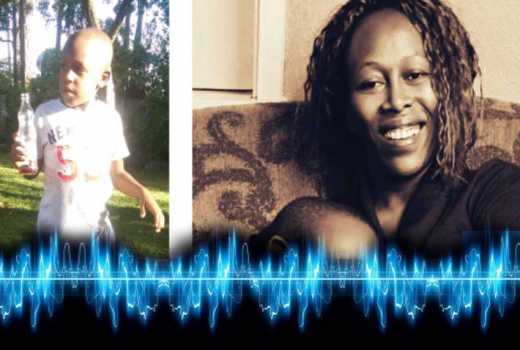
Roselyne Boyani is a mother living in hope that her son Glen, 6 diagnosed with autism, ADHD and OCD will develop his speech after therapy.
Glen was born a normal baby. He had no issues at birth. He even had normal developmental milestones. However, at two, Glen seemed to be regressing. Despite showing signs of speech earlier, and even responding to his name, the development suddenly stopped.
I thought taking him to a play school would enhance his power of speech but that didn’t happen. He still couldn’t speak and wouldn’t interact with the other kids. You could often find him huddled in a corner playing with his shoes.
He also does not listen when spoken to. And is rather impatient with the other children. He has trouble staying focused and is easily distracted or gets bored with a task before it is completed.
Glen was diagnosed just after he turned three. This was done at the Gertrude Child Development Centre after his nursery school teacher suggested that I get him accessed. The experts did a hearing a test, and Glen was found to be normal. But his paediatrician determined that he was autistic, had attention deficit hyperactivity disorder and obsessive compulsive disorder.
It seems as though Glen’s developmental milestones froze at age three. He is one month shy of six years, but he is still using his feeding bottle.
Glenice, his four-year-old sister does not display any neurological or autistic patterns.
Sometime back I joined a support group for mothers of special needs children. I learnt about stem cell therapy from one of the mothers who shared that there was a neurosurgeon from India called Dr Alok Sharma flying in to address us and follow-up on other children who had previously undergone stem cell therapy.
Being a clinical researcher and a trained nurse, I understand how we need to approach curative therapies that have, for the most part, been experimental. When I saw the neurosurgeon scans on cases previously done, and after hearing parents’ testimonies, I was in. I know a 15-year-old who was totally nonverbal, but has started speaking after the therapy.
This corrective treatment, which is a form of stem cell bone marrow transplant using the child’s own purified and isolated stem cells, is not available in Kenya. It holds promise to enable Glen to be independent (diaper-free), to speak, to interact with other children, to learn and be free of other debilitating symptoms of autism such as seizures.
Dr. Alok does the procedure at the NeuroGen Brain and Spine Institute in India. Thereafter, there is a follow-up visit after six months where he does scans to confirm that there has been progress and the damaged areas of the brain that received the new stem cell transplant have regenerated, renewed and improved. Glen is scheduled for his treatment in April and I am awaiting for response from NHIF to know if they will support his treatment.
OCD&ADHD
Obsessive Compulsive Disorder (OCD) is an anxiety disorder in which people have recurring, unwanted thoughts, ideas or sensations (obsessions) that make them to feel driven to do something repetitively (compulsions). The repetitive behaviours, such as hand washing, checking on things or cleaning, can significantly interfere with a person’s daily activities and social interactions.
Therapies
One effective treatment of OCD is a type of cognitive-behavioural therapy known as exposure and response prevention. During treatment sessions, patients are exposed to the situations that create anxiety and provoke compulsive behaviour or mental rituals.
A class of medications known as selective serotonin reuptake inhibitors (SSRIs) is effective in the treatment of OCDs. Other psychiatric medications can also be effective.
What is ADHD?
Attention-deficit/hyperactivity disorder (ADHD) is one of the most common mental disorders affecting children. ADHD also affects many adults.
Symptoms of ADHD include inattention, hyperactivity and impulsivity. ADHD is often first identified in school-aged children when it leads to disruption in the classroom or problems with schoolwork.
Scientists have not yet identified the specific causes of ADHD. There is evidence that genetics contribute to ADHD.
Behavioural therapy and medication can improve the symptoms of ADHD.
There are two main types of medication for ADHD: stimulants and non-stimulants. Stimulant medications are highly effective treatments, and include methylphenidate and amphetamines. Two non-stimulants, atomoxetine and guanfacine, have also been shown to be effective in treating ADHD symptoms.
Source: American psychiatric association
 The Standard Group Plc is a multi-media organization with investments in media
platforms spanning newspaper print
operations, television, radio broadcasting, digital and online services. The
Standard Group is recognized as a
leading multi-media house in Kenya with a key influence in matters of national and
international interest.
The Standard Group Plc is a multi-media organization with investments in media
platforms spanning newspaper print
operations, television, radio broadcasting, digital and online services. The
Standard Group is recognized as a
leading multi-media house in Kenya with a key influence in matters of national and
international interest.
